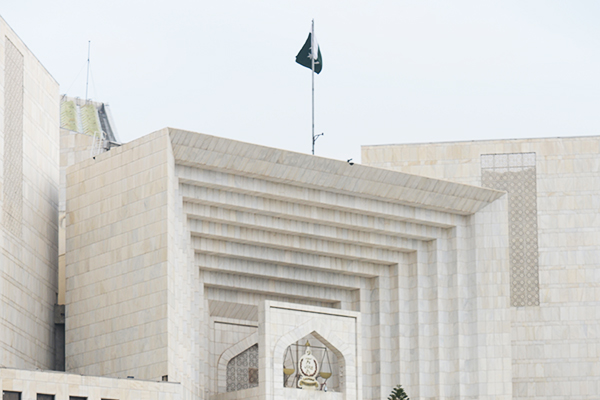
Farooq Naeem—AFP
Pakistan’s chief justice is treading a precarious line, all too familiar in neighboring India
On April 23, while hearing a suo motu notice to Geo TV on why it had not paid its employees on time, Supreme Court Chief Justice Mian Saqib Nisar said that he had put an end to his “judicial activism” and would not resort to suo motu notices any more. He was responding to a plea by the owner of the Jang Group—of which Geo is a part—to issue a suo motu reference and discover why the television channel had defaulted on salaries.
Is the “messianic” phase of the chief justice really at an end? By the time his past exemplar chief justice Iftikhar Muhammad Chaudhry finished with his “messianism” he had entered the Guinness Book with his 6,000 suo motu cases. His long tenure didn’t improve matters; instead he left behind over 20,000 cases awaiting adjudication upon his retirement in 2013.
The real reason behind the persecution of Geo TV will never be publicly articulated. This factor will haunt the “anointed” tenure of Justice Nisar as well although he clearly thinks he will leave behind a great legacy of the judicial “short-cut.” It happened in India quite early when the Supreme Court fell afoul of Prime Minister Nehru, but the real contagion struck in the 1990s when even the high courts went haywire with suo motu to the extent of conducting university exams in the states. Finally, a conference of chief ministers and chief justices of the high courts of India was held in New Delhi in 2009 in which the judges pledged to eschew short-circuiting justice. The bars in Pakistan are now demanding the same from the chief justice.
Commenting on the plague of the suo motu, Pakistan’s eminent Supreme Court lawyer Abid Hasan Minto stated in 2013 that the Pakistani Supreme Court started following the Indian Supreme Court’s precedent of defying the executive from 1996, “after the removal of the Indian parliament’s oversight in the induction of the judges.” In Pakistan, both induction and audit remain the sole domain of the Supreme Court.
